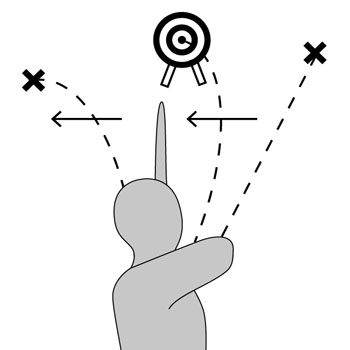Interliminal Design: Understanding cognitive heuristics to mitigate design distortion
DOI:
https://doi.org/10.7577/formakademisk.799Emneord (Nøkkelord):
cognitive heuristics, design methodology, cognitive bias, design distortion, wicked problemsSammendrag
Cognitive heuristics are mental shortcuts adapted over time to enable rapid interpretation of our complex environment. They are intrinsic to human cognition and resist modification. Heuristics applied outside the context to which they are best suited are termed cognitive bias, and are the cause of systematic errors in judgment and reasoning. As both a cognitive and intuitive discipline, design by individuals is vulnerable to context-inappropriate heuristic usage. Designing in groups can act positively to counterbalance these tendencies, but is subject to heuristic misuse and biases particular to social environments. Mismatch between desired and actual outcomes– termed here, design distortion – occurs when such usage goes unnoticed and unaddressed, and can affect multiple dimensions of a system. We propose a methodology, interliminal design, emerging from the Program in Collaborative Design at Pacific Northwest College of Art, to specifically address the influence of cognitive heuristics in design. This adaptive approach involves reflective, dialogic, inquiry-driven practices intended to increase awareness of heuristic usage, and identify aspects of the design process vulnerable to misuse on both individual and group levels. By facilitating the detection and mitigation of potentially costly errors in judgment and decision-making that create distortion, such metacognitive techniques can meaningfully improve design.

Nedlastinger
Publisert
Hvordan referere
Utgave
Seksjon
Lisens
- Forfatteren(e) beholder sin opphavs- og kopieringsrett til eget manuskript, men gir tidsskriftet varig rett til 1) å fremføre manuskriptet for offentligheten i den opprinnelig publiserte digitale form, og 2) å registreres og siteres som første publisering av manuskriptet.
- Forfatteren må selv forvalte sine økonomiske kopieringsrettigheter overfor eventuell tredjepart.
- Tidsskriftet gir ingen økonomisk eller annen kompensasjon for innsendte bidrag, medmindre det er gjort særskilt avtale om dette med forfatteren(e).
- Tidsskriftet plikter å arkivere manuskriptet (inklusive metadata) i den opprinnelig publiserte digitale form, i minst ett dertil egnet åpent tilgjengelig langtidsarkiv for digitalt materiell, som for eksempel i de norske universitetenes institusjonsarkiv innen rammen av NORA-samarbeidet.
Verket vil bli publisert OpenAccess med en Creative Commons 4.0-lisens som tillater alle å lese, dele og tilpasse innholdet, også kommersielt, under lisensvilkårene:
Dette verket må tilskrives/ krediteres på riktig måte, en lenke må gis til CC-BY 4.0-lisensen, og endringer som er gjort må angis på en rimelig måte, men ikke på noen måte som antyder at lisensgiveren støtter deg eller din bruk.



